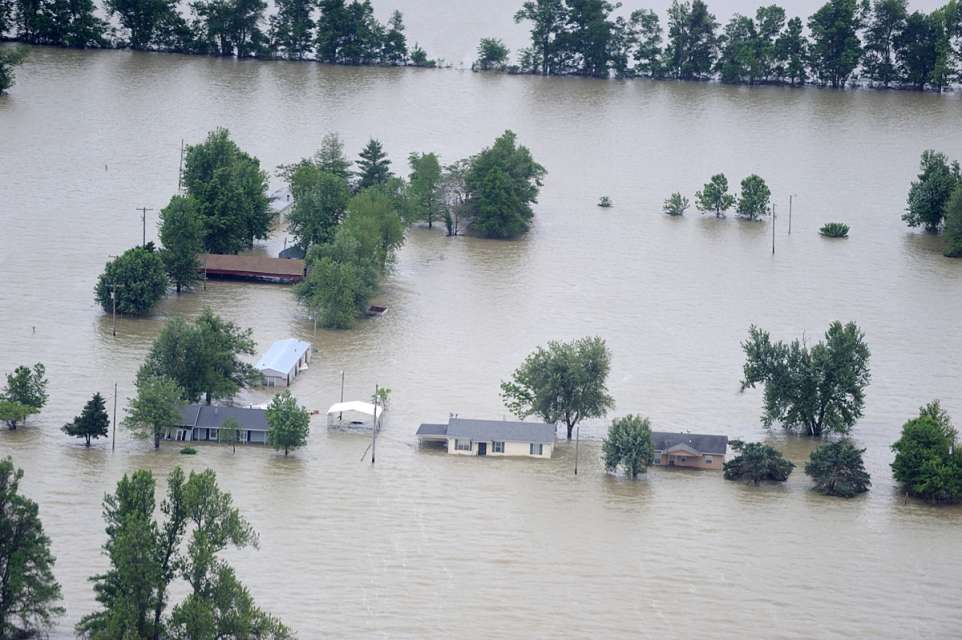The Bagre Dam spillage has resulted in some farms and houses destroyed and submerged at Kwahu Afram Plains North District of the Eastern Region.
The Afram River is swelling causing serious flood in ten (10) Communities such as Dwarf and Digya Islands, Battor kope, Liva Kope, Baabu, Kedekope, Adantatia, Srafo-Avutor, Yarokope and Doxekope.
The farms destroyed are rice, maize and cassava belonging to about 141 farmers.
READ ALSO:Â NADMO getting people to higher grounds as Bagre Dam spillage is slated for today
At Dwarf island a 168-acre rice farm has also been flooded.
Afram Plains area had not recorded rainfall for a month now a situation reducing the intensity of the flooding that would have been caused by the spillage.
The spillage of the Bagre Dam has over the years resulted in the constant loss of lives and property over the years.
It began in 1999 when during a rainy season up North, the dam could no longer contain anymore beyond its 235m depth.
The result of the spillage – 9,000 Ghanaians became homeless, a Cholera outbreak and $21m required to rehabilitate flood victims.
Sonabel, the agency responsible for the management of the Bagre and Kompienga dams, had indicated that the volumes of spilled water could be heavier this year.
Eleven districts that are affected in the Northern region includes Karaga, East Gonja, Nanumba South, Tolon Kumbungu, Bole, West Gonja, Savelugu, Nanton, East Manprusi, Yendi, and West Mamprusi.
In February 2019, during the delivery of the State of the Nation Address to Parliament President Akufo Addo disclosed that plans were underway to end the perennial flooding caused by the spillage of the Bagre Dam in Burkina Faso.
“In the short-term, desilting of the White Volta will be undertaken this year, in conjunction with discussions with the Burkinabes to regulate the flow of the spillage, and mitigate its impact,†he announced.
Â





